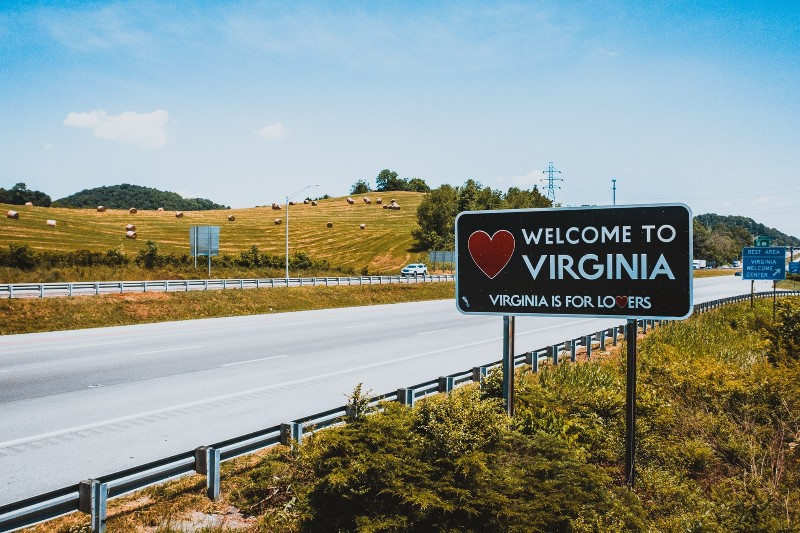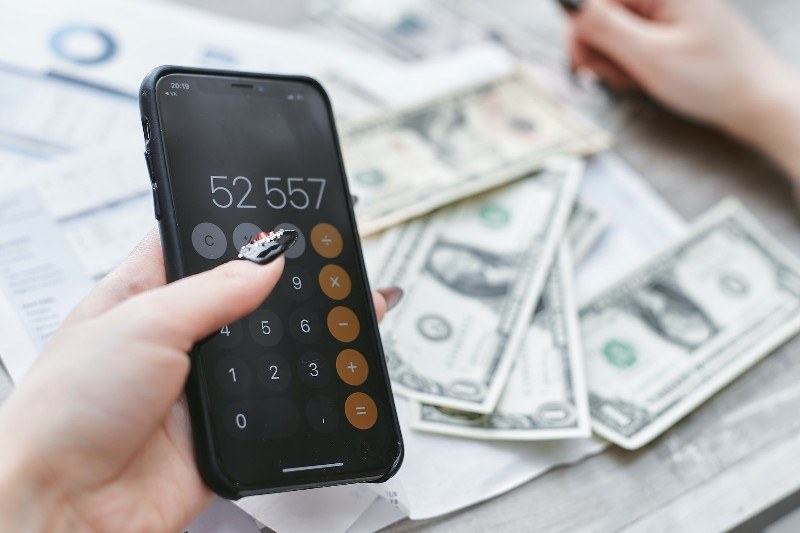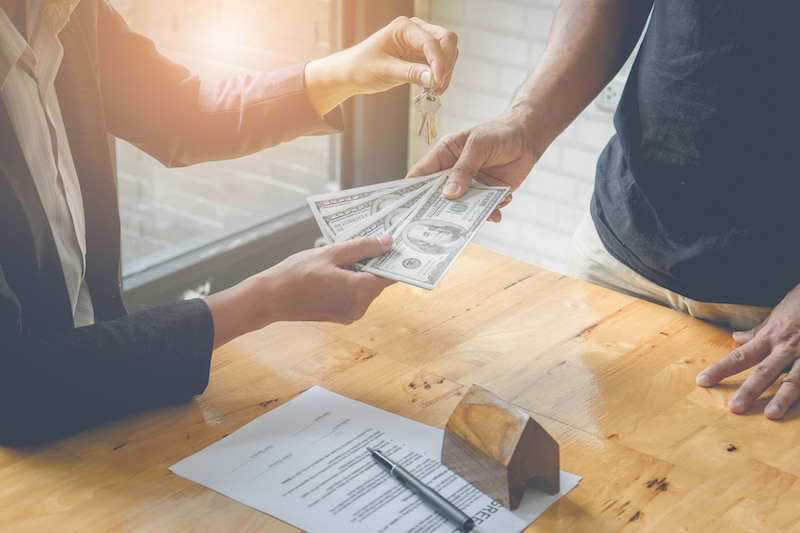If closing costs have caught you by surprise, you wouldn't be the first. First-time DC homebuyers are often surprised to learn that closing costs are separate from the down payment.
What exactly are closing costs? These are the additional expenses that come along with buying a home. Appraisal fees, credit reports, and loan origination fees can all be included. Closing costs typically need to be paid upfront for services rendered. Unlike the down payment, they can’t be rolled into the cost of the loan if buyers run out of cash - so buyers need to make sure they estimate high.
"A lot of homebuyers get the down payment and the closing costs confused. They think that they’re one fee, but they’re actually different sets of fees. That’s a very big misconception," notes DC-based buyer agent Leonard Knight.
Because certain closing costs are variable, it can be difficult to estimate before buyers have a specific property in mind. Prorated taxes paid out to the seller, for example, can vary by hundreds of dollars depending on which county the home is located in.
DC is also unique due to its close proximity to Maryland and Virginia. Homebuyers who have experience purchasing homes in those states should be aware that the costs and fees will differ.
Who Pays for Closing Costs in DC?
Both the buyer and the seller pay for closing costs in Washington, DC. Each party is responsible for different fees (though depending on market conditions, one party may offer to pay certain fees for the other). You may already know, for example, that the seller pays for both the listing agent’s commission as well as the buyer agent’s commission - these are part of the seller’s closing costs. Whereas the buyer is responsible for paying for their credit report - so that is part of the buyer's closing costs.
Buying a House in DC: Typical Closing Costs
Typical homebuyers in Washington, DC pay 3-5% of the home’s sale price in closing costs. For a $700,000 home, that’s about $21,000 - $35,000. The average closing cost for homebuyers in DC is $30,352, according to the Washington Post.
"3-8% closing costs: be prepared for somewhere in that range. I always like to err on the more conservative side, versus being over-optimistic," recommends Knight.
On average, home sellers pay about 7% - this includes the commission fees for both agents. In DC, selling a $600,000 home will cost roughly $45,500 (unless you work with a brokerage like Houwzer, which charges 1% for listing services).
Buyer Closing Costs in DC
- Deed Recordation Tax (1.1% under $400,000, 1.45% for homes $400,000 and over) Note: first-time home buyers can apply for a reduced recordation rate of .725%
- Loan Origination Fees (1%)
- Prepaid homeowner’s insurance, 1 year ($3,000)
- Escrow homeowner’s insurance, 2 months ($500)
- Property Taxes (DC pays in arrears - so whatever is left for the current year)
- Home inspection ($360)
- Home appraisal ($480)
- Title insurance to the lender:
- For homes over $250,000, rate is $5.84 per $1,000
- Homes $250,000 to $500,000 are $4.86 per $1,000
- The rate for homes over $500,000 is $3.96 per $1,000
- Property survey ($500)
- Settlement/attorney fee ($700)
- Title search ($100)
- Credit Report ($30)
- Postage/courier ($70)
- Flood Certification ($10-20)
- Wood Destroying Organism Inspection ($100)
- Home Owner Association (HOA) fees
- Water Escrow ($250)
"Although it's optional, I would highly recommend getting the WDO test because termites are common in DC," notes Knight.
Seller Closing Costs in DC
- Commission for the buyer's agent (2-3%)
- Commission for the listing agent (3% - or 1% with Houwzer)
- Title insurance to the buyer
- Home warranty ($600)
- Deed transfer tax:
- 1.1% of the sales/purchase price up to $400,000
- 1.45% of the sales price over $400,000
*Note: home sellers in DC can benefit from Houwzer’s 1% fee listing services, plus 2-3% recommended to the agent representing the buyer (rather than the typical 6% agent split).
Keep in mind that these are all approximations/averages for the local area. Your fees will vary depending on the home you buy, the companies you end up working with, your personal finances, etc. If you’re a cash buyer, for example, you’ll pay less in closing costs, since you can skip things like the loan origination fee.
Other fees are optional or may not apply to you (sellers usually don’t pay for a home warranty in a hot market, for example, and flood certification is typically only required if you live in a flood-prone area).
How Can I Pay for Closing Costs as a First-Time Homebuyer in DC?
Not surprisingly, it can be incredibly difficult to pay off, say, $50,000 in down payment fees - then go and pay $30,000 or so in closing costs. Many first-time homebuyers simply don't have this much cash on hand.
One thing to keep in mind is that a 20% down payment is not required - and in fact, often isn't the best financial choice. Depending on the lender, homebuyers can put down as little as 3.5% (How Much to Put Down on a House: the Problems with 20%).
You can also apply to down payment assistance programs and put the money you would've used on the down payment, toward closing costs instead. In DC, the Home Purchase Assistance Program (HPAP) gives up to $84,000 in down payment and closing assistance to eligible first-time homebuyers.
Can I Use a Mortgage Calculator to Determine Closing Costs?
Although you can use a mortgage calculator to get a general idea of how much cash you’ll need to bring to the closing table, it's worth keeping in mind that online calculators use averages to estimate costs - so they will never be completely accurate.
“The only mortgage calculators that I trust are where you plug in an interest rate and it shows you the payment. But even that can be inaccurate because for a borrower who’s putting less than 20% down and is going to be paying PMI, mortgage insurance is not the same for every lender,” explains mortgage advisor Robert Wagner. “The lenders we use may have slightly lower charges for the PMI than another lender. So it’s hard to trust any of the mortgage calculators out there because they default to 20% and industry averages rather than specific rates.”
SmartAsset has a fairly nuanced online calculator for buyer closing costs, as it allows you to specify by your city, down payment, type of loan (FHA or VA), and more - all things that can impact your closing cost estimate. Whereas sellers can use Anytime Estimate’s calculator.
How Can I Figure Out My Closing Costs for DC?
The best way to estimate your closing costs is to talk to your agent and/or your mortgage advisor. They can use your actual information to generate a more accurate number.
"Agents are able to put together a very rough estimate of the fees using BRIGHT MLS. You can also contact the title company and they can put together a preliminary closing disclosure (CD)," explains Knight.
For homebuyers still struggling to find a home in DC - let alone get to the point where they're ready to plunk down thousands of dollars for closing costs - Knight has some advice.
"There's not a lot of inventory on the market compared to what it was two years ago, so be prepared to be very flexible to actually win bids on houses," he says. "And try to think outside the box - I’ve been telling people to check the auction sites like Hubzu, Xome, and Auction. As a Realtor, I check those sites for my clients."
For further reading



